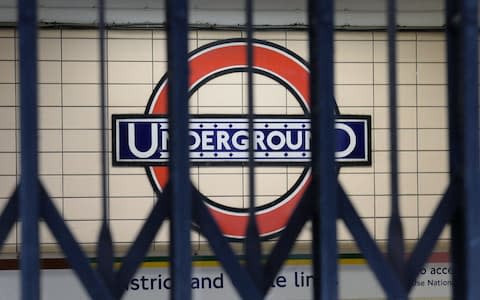Cash is no longer king as pensioners buy into contactless revolution

The contactless revolution has swept up pensioners to push the value of card payments above cash for the first time, new industry figures show.
The number of over-65s embracing tap-and-go technology has soared, boosting card transactions to become Britain’s primary payment choice
Appearing to shrug off concerns over the security of PIN-free transactions, more than half of older shoppers now use contactless regularly, trade association statistics reveal.
Debit card payments totalling 13.2 billion eclipsed the 13.1 billion payments made in cash in the United Kingdom last year, with supermarkets being the most popular place to use contactless technology.
Cash is now the second most common form of payment and is predicted to make up just 36 per cent of transactions in ten years’ time. Between 2016 and 2017, contactless payments increased by 97 per cent.
With a contactless card you don’t need to worry about remembering a PIN, you don’t need to get your specs out to be able to see a keypad
Mervyn Kohler, Age UK
The new report published by UK Finance shows that for the first time more than half of over-65s use contactless cards, compared to two-thirds of UK consumers at large.
Mervyn Kohler, a spokesman for Age UK, said: "I think we’re looking at an older population which is deeply polarised between those that embrace new technologies and those that wouldn’t touch them with a barge pole.
“There are an awful lot of old people who would be petrified at the thought of a contactless card clocking up bills that they can’t actually remember, and if they’re living on a very tight budget that’s the last thing they would want.
“On the other hand, with a contactless card you don’t need to worry about remembering a PIN, you don’t need to get your specs out to be able to see a keypad and manipulate your way around the keypad to enter your PIN when your fingers are nasty and arthritic, so I can see the plus side for people who are confident about using them.”

Adrian Buckle, head of research at UK Finance, told The Telegraph that the last year had seen a substantial uptake of contactless cards in the over-65 age bracket.
“We see with the adoption of new payment methods, it tends to be younger people who will try things first, but equally once other people see something is being used, it is working well for people and it is bringing benefits in terms of saving time and being convenient and still being secure, they try it as well,” he said.
“Even though it’s lagging behind the others, it is now over half of people in that age group using contactless,” he added.
One key driver of contactless technology has been the introduction of contactless card payments for Tube journeys, Mr Buckle said.
London Underground barriers have “provided a safe and familiar environment where people are already used to tapping a card and walking through,” he said.
“When they’re at the till, it gives them a bit of extra confidence because they know what they’re doing and they know it’s going to work."

On Friday, Transport for London announced that more than half of ‘pay as you go’ journeys are made with contactless cards or mobile devices.
The UK Payments Market report also found that while older shoppers regularly used contactless cards, they made up just 5 per cent of mobile banking payment users.
Gareth Shaw, Which? Money Expert, said: "Clearly the way we shop and pay for services is changing but for millions of people in the UK cash still plays an essential role in their everyday lives.
"With bank branch closures on the rise and the UK's free-to-use ATM network under threat, it's vital these people are still able to access the cash they need."

 Yahoo News
Yahoo News 
